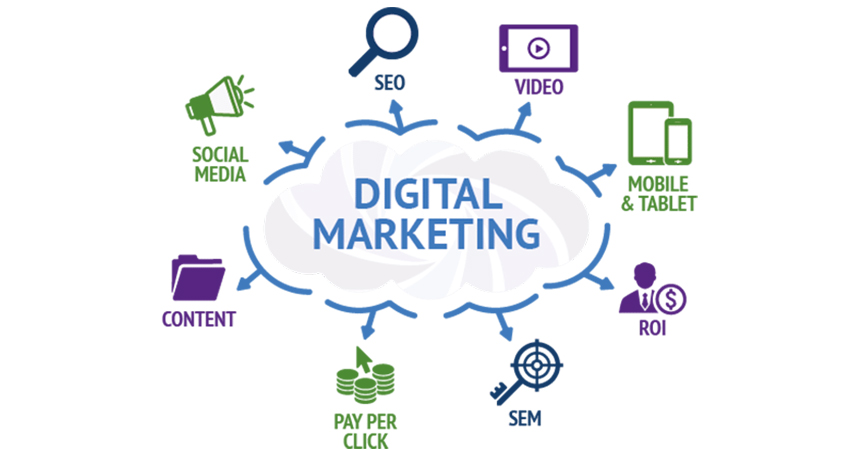What is Digital Marketing?
Digital marketing is a broad umbrella term used to define all online marketing activities undertaken to promote your goods or services online and/or on the web as a whole. It covers, Search Engine Optimization, Pay per Click, display advertising and social media marketing.
Search Engine Optimization (SEO) is a free service offered by most search engines to enhance traffic to websites. Many companies offer this service as part of their overall digital marketing strategy, with the search engines in return providing links and information about the company’s website to these search engines. In turn, the search engines provide information and links to online users, who are searching for similar products and services. This form of digital marketing works when carried out in the organic manner, whereby organic or ‘non-judgmental’ links are created from authoritative sites such as review sites and blogs, as well as from highly ranked authoritative sites themselves.
Organic SEO is when your website’s content is constructed in a way which is conducive to obtaining organic rankings in the search engines such as Google, Yahoo, and Bing. Your keywords must be relevant to the products and services you are providing, and your web pages must be designed in a way which will attract traffic from these relevant keywords. You can use the services of a professional SEO company to set up your organic SEO marketing campaign; or, if you prefer to undertake the process yourself, there are a number of tools available that you can use to generate relevant keyword analysis and then use this knowledge to create content that will draw traffic to your site, and help you achieve high search engine rankings.

Social media is a tool that enables people to interact and share their thoughts, reviews, opinions and experiences. The potential customers of your product/service will be able to leave feedback and testimonials, which may appear on your website, in a number of different ways. If these customer feedbacks are provided by a user who has previously bought a similar (or the same type) product, the chances of making a sale increase. If they are left written comments, they can remain posted for a much longer period than just an email, and it is likely that these written comments will be seen by many more potential customers than email. It is also possible to employ the services of a social media management company who will manage the social media accounts for you, ensuring that all your content is highly relevant and regularly updates.
Search engine optimization or SEO is the process of optimising your website, including creating inbound links from other relevant websites. It can be particularly beneficial when you already have a large number of inbound links coming to your website from related websites. This inbound link ‘backlink’ can potentially be transferred to your website via your inbound links, resulting in a relatively high SERP (search engine result page). The benefit of this form of digital marketing activity is that links from other websites may not be recognised as being from your website by search engines and so will not affect your ranking at all. The key to success with this form of SEO is therefore to make sure that your content marketing activities are aimed at connecting with your target audience and so that any links back to your site are genuine.
Affiliate marketing and content marketing are two forms of social media marketing. Affiliate marketing is where you promote someone else’s product, service or program in return for a commission on any sales generated from the product, service or program. Content marketing is any promotional activity designed to inform, educate or persuade your target audience about a product, service or program. There are a number of ways to go about engaging your audience through affiliate marketing and content marketing programs such as email marketing, social media marketing, content writing and blogging, and the employment of social media marketing tactics including the use of Facebook and Twitter.
There are many benefits to be had by using social media channels such as Facebook and Twitter for your content marketing strategy, including the opportunity to connect with a large number of people who share your creative assets and are interested in the same particular topic as you. By using Facebook and Twitter to promote new blog posts, articles and videos you can attract an audience who already want to learn more about what you have to offer. The best thing about creating content through these channels is the ability to reach a specific and targeted audience, which will result in your website traffic being exponentially increased.
Another way to engage your audience through these popular platforms is to create your own “lets do it” apps. Apps are short programs (a few minutes to download) that allow users to interact with and share content through a variety of applications. One example of an app relevant to mobile devices is Furl, which allows users to upload high-resolution images and share them with their social network. The sharing feature not only creates social media presence, but also the ability for users to rate the images and vote on what they see. The most compelling thing about the application is not the ability to post to Facebook or Twitter; it is the ability to share image results with Furl.






